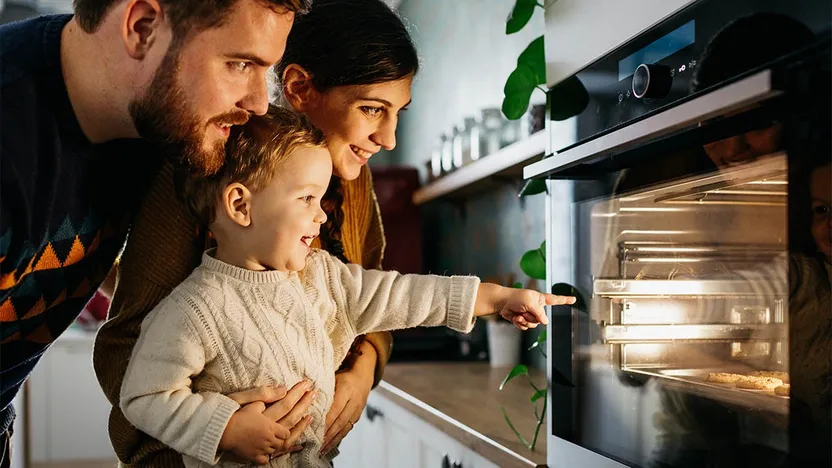By Larissa Runkle

We’ve all read the headlines: Fuel and electricity costs are on the rise, and they’re only going to get more expensive as temperatures continue to drop. In some cases, the energy crisis has become so extreme that people are having to choose between buying groceries and heating their homes—a reality that’s hard to comprehend in our modern age.
Yet according to the U.S. Energy Information Administration, the cost of heating oil is expected to jump as much as 45% compared with last winter. And natural gas could cost up to 25% more while electricity could rise 11% or more.
So what does all this mean for prospective homebuyers? For one thing, you’ll want to be sure your new home is as energy-efficient as possible. To help, we spoke to experts to find out the features buyers should be looking for in homes in light of the ongoing energy crisis. Here’s what they had to say.
1. Limit your commute
Your daily commute likely isn’t the first thing that comes to mind when you think of home shopping, but maybe it should be on the top of your list.
“Buying a home during the energy crisis can be tricky and costly if you don’t do it right,” says real estate agent Richard Harless, of AZ Flat Fee. “The location of your new home should be close to your work to make sure you don’t spend a fortune on gas alone—something a lot of people tend to compromise on during their search for a house.”
And with the unpredictable price of gas in mind, it’s also a good idea to not only choose a home that won’t have you commuting very far for basic necessities like groceries.
2. Find out what the neighbors use
When it comes to the house itself, one of the first things we recommend finding out is what the home uses as a fuel source. And how this compares with nearby properties.
“Make sure your home’s heating sources and methods are fairly consistent with your neighbors’,” says Doug Greene, owner of Signature Properties. “Buying a new home that relies on some unique or different heating method means more difficulty getting it serviced, finding fuel providers, and future maintenance.”
So go ahead and check out the heating system during an open house. And don’t be shy about asking your potential neighbors what kind of heat they use.
3. Check out the insulation
Another thing to look for in a home you are interested in buying is how well it’s insulated, particularly in the attic.
“Insulation is not just something to look for and ask about in the walls,” says Greene. “It’s the ceiling and attic that are the most crucial spots you want to be airtight.”
After all, heat rises, so the majority of your heating is going to eventually make it to the roof.
So consider an inspection that clearly documents the insulation status in the attic or ceiling, suggests Greene.
“Even if it’s not accessible, home inspectors today have thermal imaging devices that can tell what’s what from below,” Greene adds.
4. Pay attention to appliances
If the home you’re buying comes with any appliances, now’s a good time to give them a once-over and make sure they’ll be up to snuff in the long run. While an appliance wouldn’t necessarily make or break your decision, it’s definitely worth considering—especially if you’re buying an older home.
“There are some table stakes for making sure you are getting an energy-friendly home, and one of the first places to look is at the appliances,” says Greene. “Check for furnaces and water heaters that are at least 95% energy-efficient.”
Any furnace or water heater that uses PVC pipe to exhaust outside is going to be efficient enough. But if your exhaust vents through a flue or aluminum ductwork, then it’s likely an older (i.e., less efficient) model.
You’ll also want to check out the other appliances in the home—such as the fridge, stove, and even the washer and dryer—since these can all contribute to a higher energy bill if they’re out of date.
5. Look for multiple energy sources
Beyond insulation and appliances, how else can you tell if you’re buying a home that will withstand an ongoing energy crunch? By making sure you have more than one energy source working in your home.
“Having multiple forms of energy provides you with a more reliable source of energy,” says luxury real estate adviser Josh Dotoli. “And it also gives you the flexibility to switch between sources depending on which is most available and affordable at any given time.”
So look for a home with multiple energy sources like electric, gas, solar, and even wood stoves. You’ll be able to control how you heat your house at any given time—and likely save a lot of money in the process!
